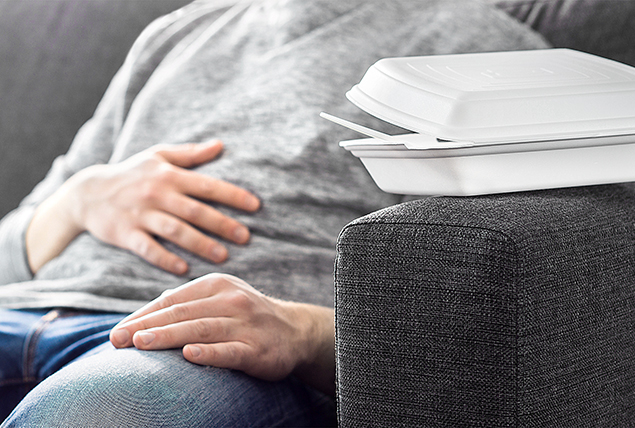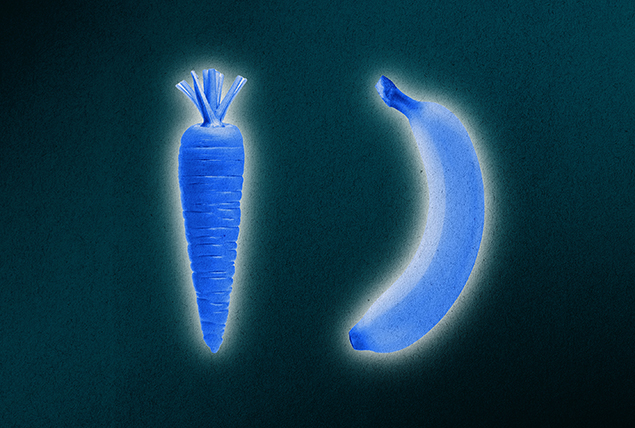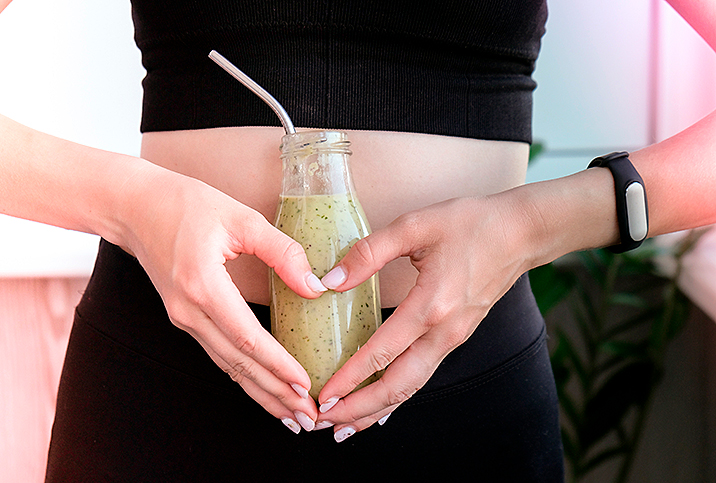You Can See the Signs of Poor Nutrition

At its most basic, nutrition is the process of taking in and using food and other nutrients for the purposes of growth, metabolism and other bodily functions. Good nutrition generally means a person is eating a diet and leading a lifestyle that brings them health, energy and vitality.
Poor nutrition, on the other hand, occurs when a person eats foods that result in less-than-optimal health. Packaged and processed foods are two examples of food lacking in the nutritional department.
Most people have at least a vague idea of when their diet is poor, but clinically, what does that mean?
Most people can recognize some of the symptoms of a poor diet, and doctors have diagnostic tests that can provide insight into specific nutritional deficiencies and help patients overcome an overall pattern of poor eating.
Common symptoms and signs of poor nutrition
If you are eating a lot of unhealthy foods, you are going to have bad nutrition, according to Kimberly Gomer, M.S., a registered dietitian and licensed dietitian nutritionist, and the director of nutrition at Body Beautiful Miami.
Poor nutrition can manifest in different ways and as different symptoms in the body:
- Lethargy and low energy
- Weight gain
- Acne or poor skin health
- Bloating
- Gas
- Diarrhea
- Constipation
- Other gut issues
Failing to provide your body with the balance of nutrients it needs may show up in many different ways.
"For one, if you have an excess of calories but not enough of the nutrients your body needs, you may be undernourished but still become obese," said Kent L. Bradley, M.D., the chief health and nutrition officer at Herbalife Nutrition, based in Los Angeles. "Individuals may experience low energy, disturbed sleep, poor digestive health. Skin health may also be impacted."
Some of the physical signs of poor nutrition, according to Amy Shapiro, M.S., a registered dietitian and the founder of Real Nutrition in New York City, include the following:
- Overweight/obesity
- Skin or hair impairments such as acne, psoriasis or loss of hair
- Impaired sleep
- Low energy
- Poor performance
- Sexual dysfunction
- Lack of focus
- Depression
- Anxiety
There are diagnostic tests that are indicative of bad nutrition because they point to either deficiencies or excessively high levels of certain biomarkers that are influenced by poor dietary choices, Shapiro said.
"If you have your blood drawn, you can see dysregulation of healthy blood levels often reflected by cholesterol, blood glucose, fasting glucose, A1C, inflammation markers, liver enzymes and thyroid hormones," she explained.
Diagnosis and tests for poor nutrition
Gomer said a good first step to diagnosing bad nutrition is simply taking an honest self-assessment of your diet and health, which could include the following questions:
- How do you think you are eating?
- How are you feeling day to day?
- How is your sleep and how are your energy levels?
- How is your mood?
Shapiro said it's easy to figure out when you should seek help for poor nutrition: immediately upon becoming aware of these issues, or even suspecting them.
Lab tests to evaluate nutrition include cholesterol profile, iron status, vitamin D, vitamin B12, blood sugar (blood glucose), hemoglobin A1C (for prediabetes, diabetes diagnosis), thyroid and hormones (especially for women), and C-reactive protein (CRP), Gomer said.
"[The] CRP test evaluates inflammation in the body, which is the cause of a lot of health issues," she added.
Several common indicators of overall health can often illuminate potential nutritional issues, Bradley said.
"Assessing nutritional status tends to focus on a few more common indicators of overall health: your percent body fat, your glucose level and your blood pressure," he explained. "Your BMI [body mass index] is the usual way of assessing indirectly your body fat, but a more direct measurement would be through bioimpedance or other form of measuring body fat percentage."
Blood tests can check your risk of diabetes using your fasting glucose level and hemoglobin A1C, Bradley said. Other specific tests can be performed, too: A complete blood count (CBC) can check for anemia, while metabolic panels look at calcium level, vitamin D, and overall liver and kidney function.
Treatment for poor nutrition, side effects and costs
A variety of treatment options exist for bad nutrition, depending on the primary causes and physical effects, Shapiro explained.
"Treatment may look like dietary recommendations for your specific needs, increased hydration, vitamin and herb supplementation, behavioral practices like food journaling, increased exercise recommendations, and referrals to other practitioners who can aid or assist in your wellness," she said.
Many people prefer to take supplements to fill nutrition gaps. Vitamins can help—a daily multivitamin is often recommended. Giddy Health offers a Multivitamin for Men and a Multivitamin for Women. Both are specially formulated for a healthy life and are made with microbeads to ensure a slow release throughout the day.
Side effects
We tend to think of "side effects" of treatments as being negative or adverse reactions. If you have to take a certain medicine to control a disease or disorder, you might get side effects such as fatigue, appetite changes or gastrointestinal symptoms, for example.
Any side effects of nutritional support or dietary therapies are generally positive, as long as you are working with someone who is knowledgeable and responsive to your needs. You should start to feel healthier, stronger and more vibrant once you start fueling your body with nutritious foods and following a balanced diet.
"In my experience of 25 years as a dietitian coaching clients to better nutritional health, I have found the key to successful treatment and results is to have an agreed-upon game plan with my client," Gomer said. "This includes short-term goals and long-term goals. The best outcomes result when the client is motivated and realistic with how much energy and discipline they are willing to commit to reaching their dietary and lifestyle goals."
Since different clients present with different needs and lifestyles, the most successful treatment options depend on the individual, Gomer said. For example, a client who never cooks will not do well with a meal plan that involves a lot of recipes and meal prep. Quick and healthy premade foods or nutritious foods that require little preparation—frozen vegetables, preportioned lean proteins, etc.—can be ideal for this type of client.
Shapiro emphasized the importance of finding a good match with a dietary professional. Only in cases of a bad match with your treatment team might you experience negative side effects from trying to improve your diet. Such a match—especially with someone who doesn't take the time to understand your goals and needs—might result in excessive hunger, frustration, difficulty sticking with your new meal plan, or trouble regulating energy levels, appetite and focus.
Costs
In terms of the cost of nutritional therapy and dietary assistance, Gomer said some dietitians accept insurance, but others do not.
Costs vary depending on whether the practitioner is in or out of network, Shapiro explained, and can vary from $50 per visit to more than $300, depending on who you see and how personalized the services are.
Editor's note: These statements have not been evaluated by the Food and Drug Administration. Our medical experts advise that you consult with your primary healthcare provider before you begin using a supplement. This information is not intended to diagnose, treat, cure or prevent disease.


















